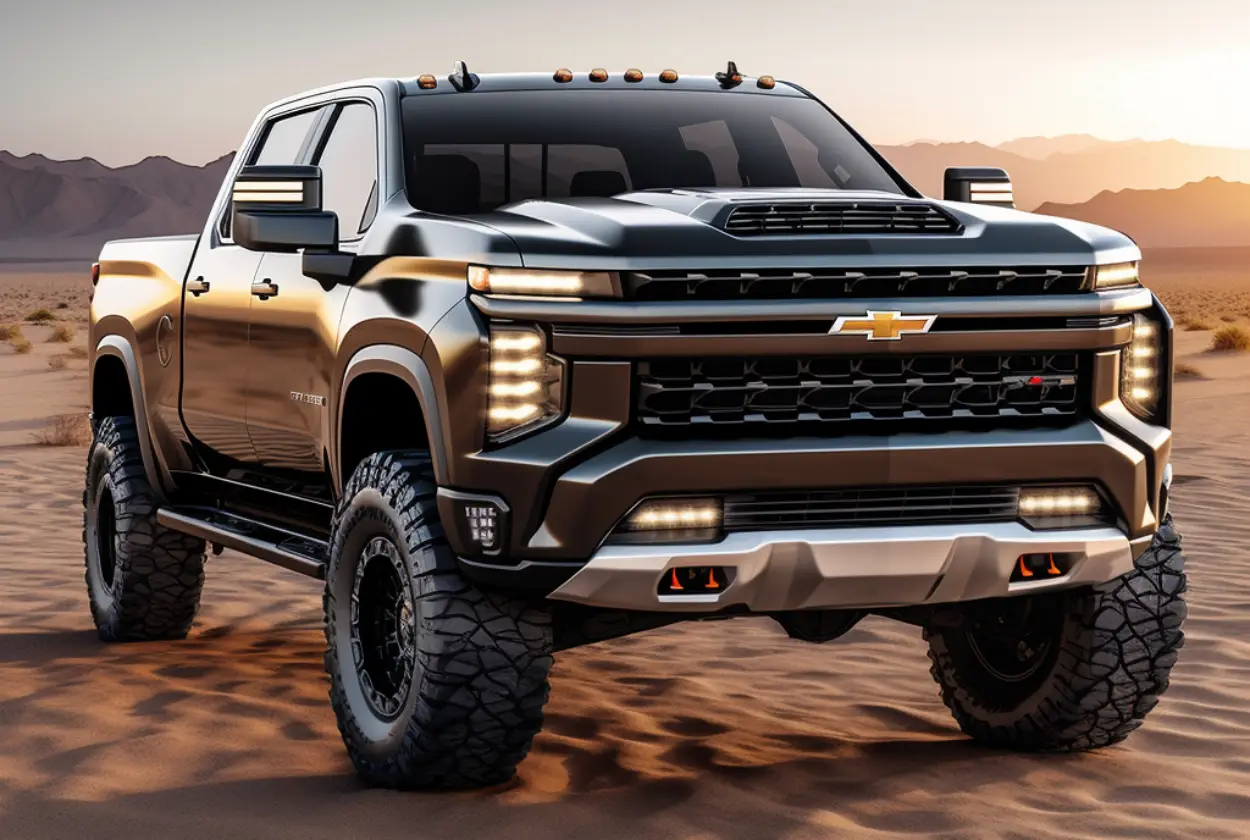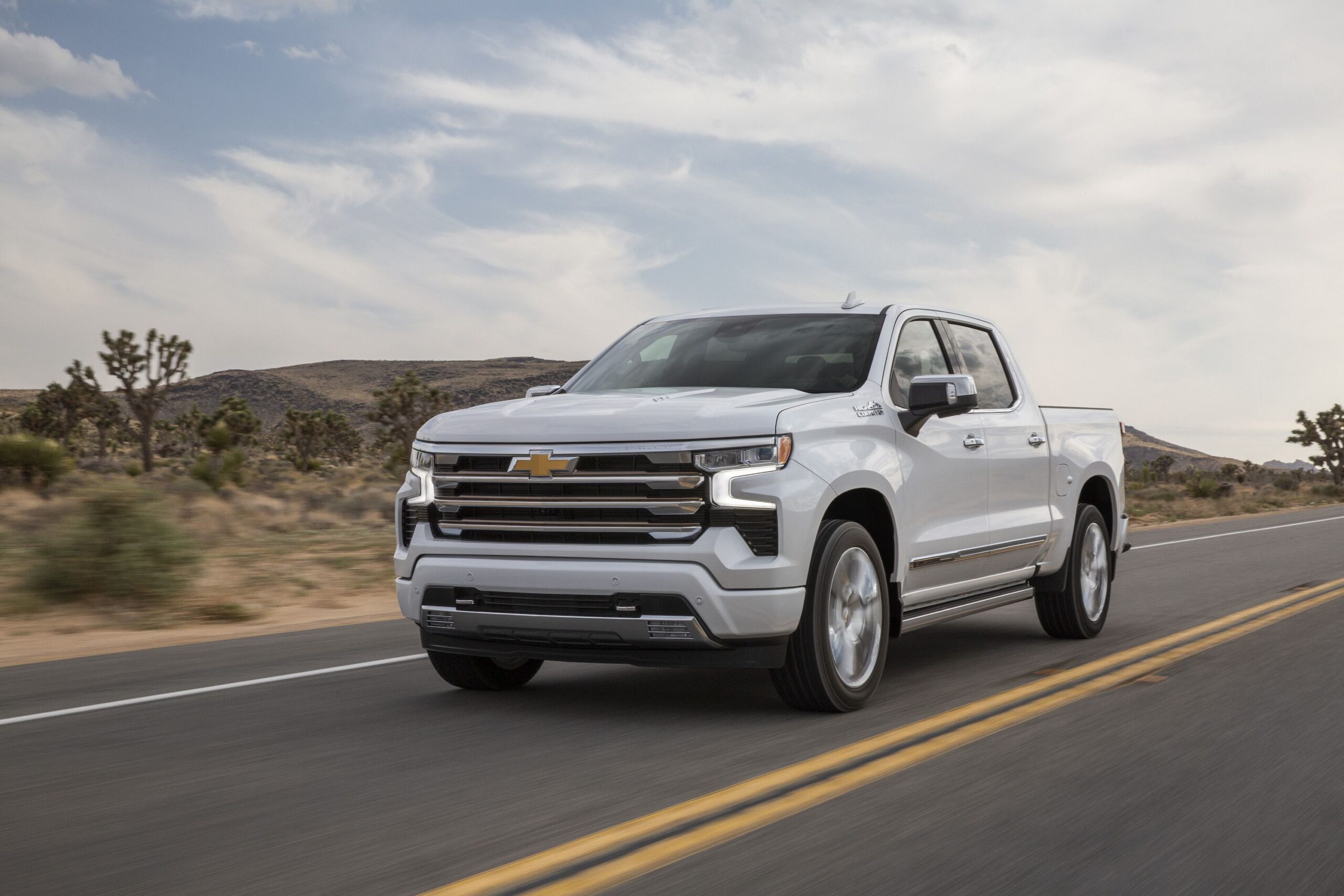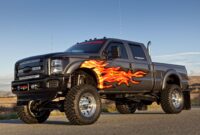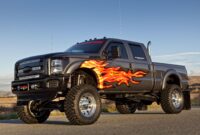Chevy 1 Ton Diesel Trucks For Sale: Your Comprehensive Buying Guide sale.truckstrend.com
The rumble of a diesel engine, the promise of immense towing capacity, and the legendary durability – these are just some of the reasons why Chevy 1-Ton Diesel trucks stand as titans in the heavy-duty pickup market. Whether you’re a commercial hauler, an avid RV enthusiast, a farmer, or simply someone who demands the absolute best in power and longevity from their vehicle, a Chevy 1-Ton Diesel truck represents a significant and often indispensable investment.
This comprehensive guide is designed to navigate the exciting, yet complex, world of "Chevy 1 Ton Diesel Trucks For Sale." We’ll delve into what makes these trucks so desirable, what to look for when buying, potential challenges, and how to ensure you drive away with the right truck for your needs.
Chevy 1 Ton Diesel Trucks For Sale: Your Comprehensive Buying Guide
Why Choose a Chevy 1-Ton Diesel? The Powerhouse Advantage
When the job demands more than just a truck, a Chevy 1-Ton Diesel steps up. Here’s why these heavy-duty workhorses command such respect:
- Unrivaled Power and Torque: At the heart of most modern Chevy 1-Ton Diesels lies the legendary Duramax 6.6L V8 engine, typically paired with the robust Allison automatic transmission. This combination delivers massive torque figures – often exceeding 900 lb-ft in newer models – enabling effortless towing and hauling of colossal loads. This power isn’t just for work; it translates into confident highway merging and acceleration even when unladen.
- Superior Towing and Hauling Capacity: The primary allure of a 1-ton truck (badged as a 3500HD by Chevrolet) is its gross vehicle weight rating (GVWR) and gross combined weight rating (GCWR). These trucks are engineered for the heaviest tasks, comfortably handling large fifth-wheel campers, gooseneck trailers, and substantial payloads in their beds. Their robust frames, heavy-duty suspension, and powerful brakes are all designed with extreme loads in mind.
- Durability and Longevity: Diesel engines are inherently built to withstand higher compression ratios and operate under heavier loads for longer periods. A well-maintained Duramax engine can easily surpass 300,000 to 500,000 miles, making these trucks long-term investments. Their components are generally over-engineered compared to gasoline counterparts, leading to a longer service life.
- Relative Fuel Efficiency Under Load: While diesel fuel can be more expensive per gallon, diesel engines are significantly more fuel-efficient than gasoline engines, especially when towing or hauling heavy loads. The efficiency advantage becomes pronounced when working the truck hard, leading to fewer fuel stops and lower operating costs over time for heavy-duty applications.
- Strong Resale Value: Due to their specialized capabilities and durability, Chevy 1-Ton Diesel trucks tend to hold their value exceptionally well. There’s a consistent demand for reliable, powerful work trucks, ensuring a healthy resale market should you decide to upgrade in the future.

Key Generations and Engines to Consider
Chevrolet’s heavy-duty trucks have evolved significantly over the decades. Understanding the key generations and their associated engines is crucial for an informed purchase:
- GMT400 (1988-2000): While primarily known for their gas engines, some of these classic "OBS" (Old Body Style) trucks came with the 6.5L Detroit Diesel. These are simpler, mechanically injected diesels, known for their reliability but lower power output compared to modern Duramax engines. They make great budget work trucks or restoration projects.
- GMT800 (1999-2007): This era introduced the game-changing Duramax 6.6L V8 engine paired with the Allison 1000 automatic transmission.
- LB7 (2001-2004): The first Duramax. Powerful for its time, but known for injector issues that can be costly to repair if not already addressed.
- LLY (2004.5-2006): Addressed some LB7 issues, but can have turbo mouth piece restrictions and minor overheating concerns when heavily worked.
- LBZ (2006-2007): Widely considered one of the best Duramax engines. More power, improved injectors, and generally robust. These are highly sought after.
- GMT900 (2007.5-2014): Introduced updated styling and more advanced emissions systems.
- LMM (2007.5-2010): The first Duramax with a Diesel Particulate Filter (DPF), requiring diesel exhaust fluid (DEF) for emissions compliance. Strong engine, but DPF issues can arise if not properly maintained.
- LML (2011-2014): Further refinements, increased power, and improved DEF system. Generally very reliable, but DPF/DEF systems require attention.
- K2XX (2015-2019): Updated interior, improved ride quality, and continued LML engine. Late 2017 saw the introduction of the L5P Duramax, a significant upgrade with more power and torque, addressing many common rail issues of previous generations. These trucks offer a great blend of capability and modern features.
- T1XX (2020-Present): The current generation features aggressive styling, even higher towing capacities, and the refined L5P Duramax engine. These are the most capable and technologically advanced Chevy 1-Ton Diesels available, often commanding premium prices.
What to Look For When Buying: Your Inspection Guide
Purchasing a used Chevy 1-Ton Diesel requires meticulous inspection. These are complex machines, and a pre-purchase inspection (PPI) by a qualified diesel mechanic is highly recommended.
-
Engine:
- Cold Start: Listen for excessive smoke (white/blue indicates issues), hard starting, or unusual noises.
- Under the Hood: Check for oil leaks, coolant leaks, and fuel leaks. Inspect belts, hoses, and wiring for wear or damage.
- Fluid Levels and Condition: Check engine oil (dark is normal for diesel, but check for excessive grime), transmission fluid (red, not burnt), coolant.
- Exhaust: Look for signs of DPF issues (excessive regeneration, clogged filter). If equipped with DEF, check the tank and lines.
- Turbocharger: Listen for excessive whine or abnormal sounds. Check for oil leaks around the turbo.
- Injectors: For LB7 Duramax, ask if injectors have been replaced. Listen for injector knock.
- Blow-by: Remove the oil fill cap while the engine is running. Excessive pressure/smoke coming out can indicate worn piston rings.
-
Transmission (Allison):
- Test Drive: Ensure smooth, timely shifts in all gears, both up and down. No slipping or harsh jerking.
- Fluid: Check the color and smell (shouldn’t smell burnt).
-
Chassis and Suspension:
- Rust: Inspect the frame, cab mounts, bed mounts, and suspension components thoroughly, especially in regions that use road salt.
- Shocks/Springs: Look for leaks on shocks, sagging springs.
- Steering & Front End: Check for excessive play in the steering wheel. Inspect tie rods, ball joints, and wheel bearings for wear.
- Driveshafts/U-joints: Check for play.
-
Brakes: Check pad thickness, rotor condition (grooves, warping), and brake fluid level.
-
Tires: Inspect tread depth and look for uneven wear, which can indicate alignment or suspension issues.
-
Interior and Electronics: Test all lights, gauges, HVAC, power windows/locks, infotainment system, and any other electronic features.
-
Maintenance Records: This is CRUCIAL for a diesel. A truck with a complete service history is far more valuable than one without. Look for records of regular oil changes (with proper diesel-specific oil), fuel filter changes, transmission services, and any major repairs.
-
VIN Check: Run a comprehensive VIN report (CarFax, AutoCheck) to check for accident history, salvage titles, flood damage, mileage discrepancies, and recall history.
Understanding the Costs and Value
Beyond the sticker price, owning a Chevy 1-Ton Diesel involves ongoing costs:
- Purchase Price: Varies significantly by year, mileage, condition, trim level (WT, LT, LTZ, High Country), and 2WD/4WD.
- Maintenance Costs: While less frequent, parts and labor for diesel engines can be more expensive than for gasoline engines. Specialized tools and knowledge are often required. Budget for regular fuel filter changes, air filter changes, and oil changes with larger oil capacities.
- Fuel Costs: Diesel fuel is often priced higher than gasoline. However, the superior fuel economy under load often offsets this, particularly for those who frequently tow or haul.
- Insurance: Can be higher due to the vehicle’s higher purchase price, repair costs, and specialized nature.
- Registration/Taxes: Many states base registration fees on vehicle weight, which can be higher for 1-ton trucks.
- Depreciation: Generally, these trucks hold their value well, especially the more desirable engine/transmission combinations (e.g., LBZ, L5P Duramax with Allison).
Tips for a Successful Purchase
- Define Your Needs: Be honest about what you’ll use the truck for. How much towing capacity do you really need? What features are essential? This will help narrow your search.
- Research Thoroughly: Understand the common issues for the specific year and engine you’re considering. Forums and owner groups are invaluable resources.
- Test Drive Extensively: Don’t just drive around the block. Take it on the highway, accelerate, brake, and if possible, test it with a load similar to what you’d typically haul.
- Get a Pre-Purchase Inspection (PPI): This is non-negotiable for a used diesel truck. A reputable mechanic can identify potential costly issues that might not be obvious to the untrained eye.
- Negotiate Wisely: Arm yourself with market data. Know what similar trucks are selling for in your area. Be prepared to walk away if the deal isn’t right.
- Consider Aftermarket Modifications: Be cautious of heavily modified trucks. While some mods (e.g., exhaust, tuning) can enhance performance, they can also void warranties, affect reliability, or be illegal in some states (e.g., DPF/DEF deletes). Ensure any modifications are disclosed and professionally installed.
Potential Challenges and Solutions
- High Mileage: A common concern, but for a diesel, high mileage isn’t always a deal-breaker. A well-maintained diesel with 200,000 miles can be a better buy than a poorly maintained one with 100,000 miles.
- Solution: Focus on maintenance records and a thorough PPI.
- Emissions Systems (DPF/DEF): These systems, while necessary for compliance, can be costly to maintain or repair if neglected.
- Solution: Understand the maintenance requirements (e.g., DPF regeneration, DEF fluid refills). Budget for potential replacements if buying an older truck.
- Injector Issues (LB7 Duramax): The early LB7 Duramax is notorious for fuel injector problems.
- Solution: Inquire if injectors have been replaced. If not, factor in the cost of replacement (potentially $3,000-$5,000+) into your budget.
- Rust: Common in trucks from northern climates where road salt is used.
- Solution: Thoroughly inspect the frame, body panels, and brake lines. Surface rust is manageable, but structural rust is a red flag.
- Finding a Well-Maintained Truck: It can take time to find the right truck with good history.
- Solution: Be patient, expand your search radius, and don’t compromise on the PPI.
Representative Price Table: Chevy 1 Ton Diesel Trucks For Sale
It’s important to note that prices for used trucks vary wildly based on mileage, condition, trim level, 2WD/4WD, and geographic location. This table provides general ranges for well-maintained examples.
| Model Year Range | Engine Type | Trim Levels Commonly Found | General Price Range (USD) | Key Features/Notes |
|---|---|---|---|---|
| 1990s-2000 | 6.5L Detroit Diesel | WT, LS | $5,000 – $15,000 | OBS body style; simpler mechanics; lower power. |
| 2001-2004 | LB7 Duramax | LS, LT | $10,000 – $20,000 | First Duramax/Allison; look for replaced injectors. |
| 2004.5-2007 | LLY/LBZ Duramax | LS, LT, LTZ | $15,000 – $30,000 | LBZ is highly sought after; good blend of power & reliability. |
| 2007.5-2010 | LMM Duramax | WT, LT, LTZ | $18,000 – $35,000 | First with DPF; still strong performers. |
| 2011-2014 | LML Duramax | WT, LT, LTZ, Denali | $25,000 – $45,000 | Strong power; improved DEF system; modern interior. |
| 2015-2017 | LML Duramax | WT, LT, LTZ, High Country | $30,000 – $55,000 | Refined interior; still LML engine. |
| 2017.5-2019 | L5P Duramax | WT, LT, LTZ, High Country | $40,000 – $65,000 | Significantly more power and torque; robust engine. |
| 2020-Present | L5P Duramax | WT, LT, LTZ, High Country | $55,000 – $80,000+ | Latest generation; highest capacities; advanced tech. |
Note: These prices are estimates and can vary widely based on condition, mileage, trim level, 2WD/4WD, and geographical market.
Frequently Asked Questions (FAQ)
Q: What’s the best year for a Duramax engine?
A: Many enthusiasts consider the LBZ (2006-2007) as the sweet spot for older models due to its strong performance and lack of a DPF. For newer models, the L5P (2017.5-present) is highly regarded for its power and reliability.
Q: How many miles is too many for a diesel truck?
A: Unlike gasoline engines, high mileage (200,000+ miles) is not necessarily a red flag for a diesel, provided it has been meticulously maintained. A well-cared-for diesel can easily last 300,000 to 500,000 miles or more. Focus on maintenance records and a pre-purchase inspection over just the odometer reading.
Q: What’s the difference between a 2500HD and a 3500HD?
A: Both are heavy-duty trucks, but the 3500HD (1-ton) typically has a higher Gross Vehicle Weight Rating (GVWR) and often comes with dual rear wheels (dually) or a beefier single-rear-wheel setup. This translates to significantly higher payload and towing capacities compared to a 2500HD (3/4-ton).
Q: Should I buy a truck with a DPF/DEF delete?
A: Modifying or deleting emissions equipment (DPF, DEF, EGR) is illegal for street-driven vehicles in many regions and can lead to significant fines, voided warranties, and potential issues passing inspections. While it may offer performance benefits or reduce maintenance, it comes with considerable legal and practical risks. It’s generally advisable to avoid deleted trucks unless they are strictly for off-road or competitive use in areas where such modifications are permitted.
Q: What are common problems with Duramax engines?
A: Common issues vary by generation:
- LB7 (2001-2004): Fuel injector failures.
- LLY (2004.5-2006): Restricted turbo mouth piece, minor overheating.
- LMM/LML (2007.5-2014): Emissions system (DPF/DEF) issues if not properly maintained.
- Generally, all Duramax engines benefit from regular fuel filter changes and quality diesel fuel.
Q: Is a pre-purchase inspection (PPI) necessary?
A: Absolutely. For a complex, high-value vehicle like a diesel truck, a PPI by an independent, qualified diesel mechanic is an essential step. It can uncover hidden issues, save you thousands in future repairs, and give you leverage in negotiations.
Conclusion
A Chevy 1-Ton Diesel truck is more than just a vehicle; it’s a powerful tool, a reliable partner, and often a significant investment. With their legendary Duramax engines and Allison transmissions, these trucks offer unmatched towing, hauling, and durability, making them ideal for the toughest jobs and the biggest adventures.
By understanding the different generations, knowing what to meticulously inspect, and preparing for the true costs of ownership, you can confidently navigate the market of "Chevy 1 Ton Diesel Trucks For Sale." Patience, thorough research, and a non-negotiable pre-purchase inspection are your best allies. Choose wisely, and you’ll acquire a truck that serves you faithfully for hundreds of thousands of miles, proving itself a truly indispensable asset.



